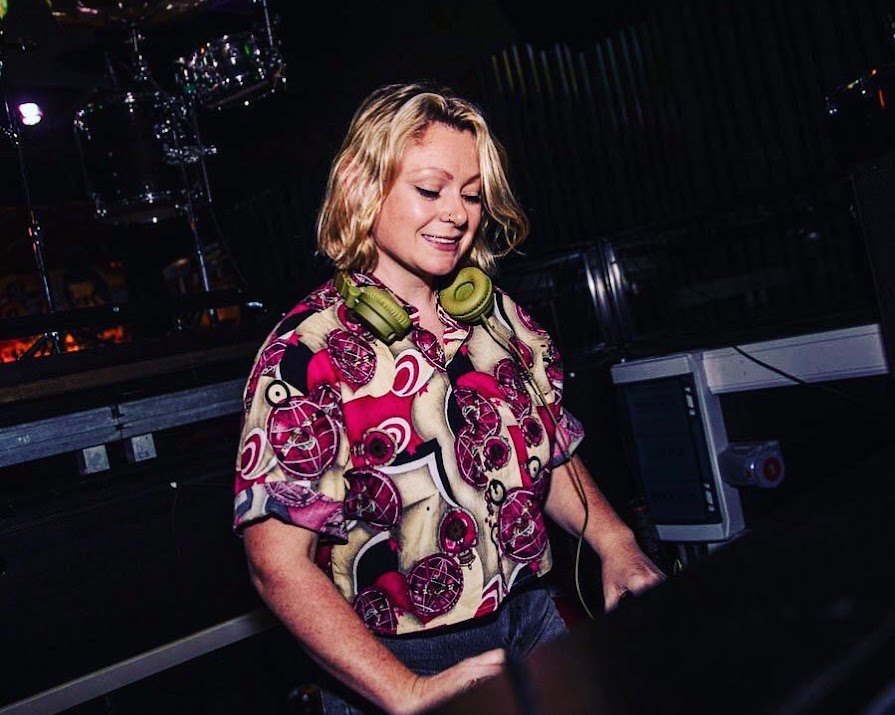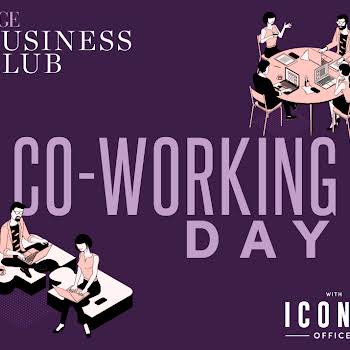By Louise Bruton
01st Nov 2019
01st Nov 2019
In part two of this three-part series, Louise Bruton introduces the real-life challenges of working the seemingly glam job of a creative freelancer in the Irish media sector
There’s a romantic idea that when you’re self-employed, you choose your own hours and set a pace that suits you. The reality is slightly different. Self-employed people are incredibly self-driven and tend to work longer days, take shorter breaks and juggle multiple jobs at the once.
Following on from the first installment, where I spoke to DJ, radio presenter and general buzzer Tara Stewart and stylist and angel Justine King, in this week’s piece, we hear from music writer Andrea Cleary, photographer Ruth Medjber and the jack of all trades that is Claire Beck. Some of the finest in the game, they fill us in on their average working week.
Andrea Cleary – @AndreaCleary_
I often feel like I’m not getting as much done as they are but I think that comes with the territory
What’s your official job title?
I’m a music writer and podcaster. My day job is in marketing, where I’m a digital marketing specialist for a tech company. I write tech articles, manage social media accounts, and work on branding and web copy.
What other jobs do you do under that banner?
Broadcaster, culture writer, music critic, social media specialist, tech blogger, copywriter.
What’s an average working day for you?
I have a 90-minute commute to and from work each day, so during that time, I’m probably listening to new music that’s been sent to me or whatever album I’m reviewing that week. I can usually be spotted scribbling notes on the bus at these times.
I get to work and start the day-job duties: researching, writing, social media scheduling, collateral designs, loads of meetings. I’m probably listening to new music on my headphones during these hours too. There’s a lot to get through and it lets me feel more connected to my other work. I finish up work and try to read on the bus home. If I’m feeling productive it’ll be a book about music, but at this stage I’m probably staring blankly out the window.
I try to go to gigs as often as I can, but if I’m not at a gig or podcast recording, I’ll get home and work for a couple of hours on a review or a pitch. Collapse into bed. Repeat.
How many days of the week do you work?
I try to do everything I can between Monday and Friday so that my weekends are my own, but I generally end up spending Saturday afternoons writing. Five to six days per week, usually.
Do your mates/family think you’re mad?
A lot of my friends are writers, musicians, or artists with day jobs that pay the bills, so I’m in supportive company. When I look around at other freelancers, I often feel like I’m not getting as much done as they are but I think that comes with the territory. We don’t often talk about downtime. My non-freelancing friends make fun of me for only being available to hang out at gigs, but they’re generally really supportive.
Do you ever see a day where you can cut out the side gigs?/Would you want to?
I’d love to be in a position where I’m spending all of my working hours writing about music, but I don’t see it in the stars any time soon. I’m renting in Dublin and rely on the security of my monthly wage from my day job. All of the additional work — music writing and podcasting — are labours of love. I’d love for them to pay the bills, but I’m grateful that writing — in one form or another — takes up the majority of my day.
Ruth Medjber – @ruthlessimagery
I take a day off every three weeks or so. I’m not proud of this.
What’s your official job title?
Photographer
What other jobs do you do under that banner?
Everything really as it’s my own business. Marketing and PR is a big thing to keep the jobs rolling in. I also do some accounting, invoicing and the like. Which leads me on to being a hired goon when people don’t pay — people never pay their freelancers. I’m a stylist for bands that can’t afford a real stylist. A terrible graphic designer. A studio manager. A cleaner. A lighting engineer. A copywriter. A re-toucher. All of that falls under the banner of a photographer.
Photography is so broad though. The reason I don’t call myself a music photographer — even though that’s what most people know me as — is because it’s not the only thing I do. Music photography in Ireland doesn’t pay the bills; not unless you live at home with your folks and have zero social life anyway. So I pepper my day to day with other, more lucrative forms of photography, like corporate events, actor headshots and even some wedding photography. But only for people I know — I’m terrified of bride/groomzillas.
I recently did a massive portrait commission for an NGO that was exhibited in the Gallery of Photography, a space I’d always dreamed of exhibiting in. It took a few months but was nice to have a big job like that to work on.
What’s an average working day for you?
I try to be at my desk at 9 am to placate the 9-5ers who don’t understand the freelance world and expect an immediate response to every email. On shoot /gig days, I could get home about 1 am. On non-shoot days, I’ll sit and edit until about 11 pm. I like working on edits into the evening as the emails stop pouring in and I can finally get a flow going.
How many days of the week do you work?
All of them. Including bank holidays. I take a day off every three weeks or so. I’m not proud of this. I should definitely be taking more downtime but I graduated into the recession and can’t shake the mentality of grabbing all the work that comes my way. It’s not greed and I’m not minted. Photography is an expensive profession, so I have to save an awful lot of my earnings just to keep my gear up to date and my insurance policies paid.
Do your mates/family think you’re mad?
No, not mad. My folks are proud of my work ethic. They think I’m dedicated and a little bit addicted to my work. It’s my whole identity so they just understand. My friends just accept it when I miss birthday parties or holidays due to work but they’re also really delighted when I get them into gigs as my plus one.
Do you ever see a day where you can cut out the side gigs?/Would you want to?
YES and YES.
I’m trying to be better at hiring others and delegating. I’d love a manager to handle to the business side of things for me and to strategise with me. I’d also love a full-time assistant but finding a trustworthy one who can handle the workload is proving tough.
My ideal goal would be to drop all the other types of photography and to 100% concentrate on being a Fine Art Photographer. However, this is Ireland, and the one thing we do terribly is funding the arts, so I’m not banking on that dream ever coming true.
Claire Beck – @clairebeck1052
Last Saturday I left my house at 7.30am and got home three gigs later at 7am.
What’s your official job title?
Let’s go with DJ and radio presenter.
What other jobs do you do under that banner?
Radio producer, researcher and music manager, mentor, voice-over artist, choreographer/director, event planner, promoter, stage manager, performer, costume designer, booker, writer, podcast host, and of course every freelancer’s favourite part; accountant.
What’s an average working day for you?
I don’t have one. Some days, I could record a voiceover in the morning, do a radio show in the afternoon, chase invoices all evening then go DJ till 3 am. Last Saturday I left my house at 7.30 am and got home three gigs later at 7 am. Other days, I could have nothing concrete booked in and get to play in my studio all day. If the diary is quiet for a few days in a row, I start to panic. I find it really hard to take more than a day off at a time but I’m working on it.
How many days of the week do you work?
The amount of DJ sets I do will vary from week to week. When festival season is in full swing, I’m barely home. This isn’t a complaint, by the way— I adore what I do.
I’ve just started working two days a week as a music manager for Today FM’s online stations. I’m really enjoying the work, but also the fact that my weekdays have a bit of structure now. As most of my work is at night and I have a small studio set up at home, there’s a real danger of not leaving home for 24 hours if I get stuck into a project. Now that I’ve less free time during the day, I have to allocate time for different tasks; prepping for DJ sets, recording mixes, meeting with bookers and promoters, devising concepts for different stage shows.
Last year, I toured festivals with two different shows as well as my own DJ sets; a daytime yoga/dance/DJ combo called the CB Disco Ball, and a surrealist cabaret troupe called Naughty Party.
Answering these questions has made me realise that because of the nature of my work, I’m kind of always ‘on’. I listen to music nearly constantly and it’s rarely passive. I’m usually getting ideas from it and then wandering down rabbit holes putting sets together.
I’ve started running music and DJ workshops as well. I’ve informally mentored people over the years and it made sense to make it more official. I’m also in the process of restoring an old vehicle to turn into a mobile festival stage and we might tour a kid’s show I did the music for recently, so it’s pretty full-on.
Do your mates/family think you’re mad?
They are used to me and, thankfully, are incredibly supportive. They understand that I’ll often miss out on social occasions because that’s when I’m at work. My work is quite seasonal and there are a few months of the year where it’s very full-on and they accept that I won’t be around much when that’s happening. I think they can see that while it can be a lot, I love what I do and it’s worth it to me.
Do you ever see a day where you can cut out the side gigs?/Would you want to?
I don’t know if I could, to be honest. I get itchy when I’m not busy and will come up with a new project to fill the time. Radio and DJing are my first loves, and they will always be my top priority. But, I can’t seem to just chill when I have downtime. Instead, I come up with these ideas for new creative projects to take on. I think if you work in this industry you’re only as good as your last gig. So there’s a pressure on to keep on your toes and come up with new ideas. I can’t see myself doing anything else though.
Read More: Will I be able to earn enough to live?
Read More: There are perks to being a freelance worker, but here’s the reality
Read More: Improving your negotiation skills at work…


























